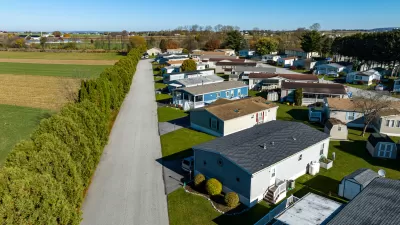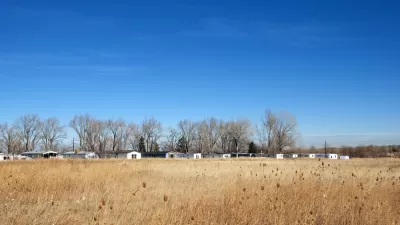State leaders see the influx of younger residents as a boon to Maine’s economy, but this could come at the expense of affordable housing.

Small communities in America’s easternmost state are feeling the impact of pandemic-era demographic shifts as an influx of younger residents brings a mixture of benefits and challenges. As Jenna Russell explains in a piece for The New York Times, “Maine, Vermont and New Hampshire have seen an uptick in new residents arriving from other states, more than 50,000 across the three states since April 2020, even as other Northeastern states — and especially large metro areas — have experienced a surge in out-migration.”
For Maine, the growth is significant, reversing the longstanding trend of a dwindling, aging population. “Population shifts — even small ones — carry high stakes in this rural, sparsely populated state, and across northern New England, where leaders have worried for years about a so-called ‘silver tsunami’ with implications for the economy and the fate of rural communities.” Now, the increase in younger residents is breathing new life into the state’s economy, but is also driving a steep rise in housing costs.
Between 2020 and 2021, Maine was the only state in the nation to see its median age decline thanks to an influx of younger residents moving in during the pandemic. In one Maine county, median home prices surged by 60 percent between 2019 and 2022. Like many small communities around the country, local and state leaders must now grapple with the challenges to housing affordability and infrastructure that growth brings.
FULL STORY: In Maine, a Rare Influx of New Residents, and a Housing Crunch

Planetizen Federal Action Tracker
A weekly monitor of how Trump’s orders and actions are impacting planners and planning in America.

Maui's Vacation Rental Debate Turns Ugly
Verbal attacks, misinformation campaigns and fistfights plague a high-stakes debate to convert thousands of vacation rentals into long-term housing.

San Francisco Suspends Traffic Calming Amidst Record Deaths
Citing “a challenging fiscal landscape,” the city will cease the program on the heels of 42 traffic deaths, including 24 pedestrians.

Defunct Pittsburgh Power Plant to Become Residential Tower
A decommissioned steam heat plant will be redeveloped into almost 100 affordable housing units.

Trump Prompts Restructuring of Transportation Research Board in “Unprecedented Overreach”
The TRB has eliminated more than half of its committees including those focused on climate, equity, and cities.

Amtrak Rolls Out New Orleans to Alabama “Mardi Gras” Train
The new service will operate morning and evening departures between Mobile and New Orleans.
Urban Design for Planners 1: Software Tools
This six-course series explores essential urban design concepts using open source software and equips planners with the tools they need to participate fully in the urban design process.
Planning for Universal Design
Learn the tools for implementing Universal Design in planning regulations.
Heyer Gruel & Associates PA
JM Goldson LLC
Custer County Colorado
City of Camden Redevelopment Agency
City of Astoria
Transportation Research & Education Center (TREC) at Portland State University
Jefferson Parish Government
Camden Redevelopment Agency
City of Claremont





























